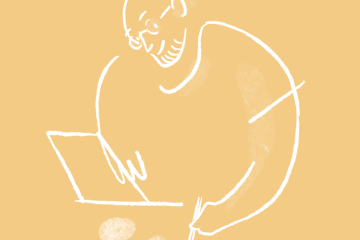Universities and higher education institutions examine all submitted academic works using automatic plagiarism testing software. Plagiarism means that passages in the text were taken over from other works into the own work without stating the corresponding source that the concerned text passage stems from. It is irrelevant whether the text passage was integrated into the own work verbatim or in paraphrased form; the critical factor is that someone else’s body of thought was reproduced without reference. Plagiarism is a form of stealing and is strictly forbidden in any academic work. Should plagiarism be found in your works, this may lead to you failing the assignment, even if you did not plagiarise on purpose but as a result of carelessness. Therefore, a significant advantage of plagiarism assessment lies in significantly reducing the risk of failing or receiving poor marks due to having involuntarily plagiarised in a seminar or even your final paper.
Suppose you are unsure whether your texts may contain unintentional plagiarism. In that case, you can conduct a plagiarism assessment yourself before submitting your text to your university, either using a plagiarism testing software or an online plagiarism assessment. In the following, we summarise how such plagiarism assessments work, their advantages, and which providers offer plagiarism assessments. After that, we answered some questions related to plagiarism assessment.
Proceeding with a plagiarism assessment
A plagiarism assessment can be conducted in the browser or using plagiarism testing software installed on your computer. The process is similar for both options:
- You upload the document to the plagiarism testing software or the respective website.
- Then, the plagiarism assessment is conducted automatically.
- You receive a test report that contains the result of the plagiarism assessment.
Within the automatic plagiarism assessment scope, a comparison of your document with various sources is performed utilizing an algorithm. Providers of plagiarism testing software thereby resort to digitized sources that are freely available online, e.g. books, magazines, journals, website texts, academic papers, or student works. In addition, universities and other higher education institutions also examine scientific texts available to these institutions in digitized form. Thereby, the plagiarism assessment carried out by universities and other higher education institutions are more comprehensive. However, even the non-university providers of plagiarism assessments have a wide range of sources, for instance, from different publishers like Springer, Taylor & Francis, Wiley Blackwell, BMJ or Gale.
Advantages of online plagiarism assessment and plagiarism testing software
Despite a large number of sources examined, in most cases, the result of an online plagiarism assessment is available within a few minutes. Because the plagiarism assessment is performed directly within your document, your document is what you get back as the result of the plagiarism assessment, supplemented by coloured marking. These markings indicate which text passages are alike or similar to text passages of the sources checked. In addition, a percentage that represents the degree of concordance is provided. It is to be considered that the marked text passages are not necessarily plagiarism. If the marked text passages have a sound reference source and are cited correctly, there is no need to worry. Many plagiarism assessments, on the one hand, also mark phrases that are part of everyday language use as similar to the examined text; and, on the other hand, text parts that are part of numerous scientific papers in the same form are also marked, e.g. reference list, statutory declaration or blocking notice.
For this reason, you must check whether the text passages marked were properly cited and complemented by the respective reference source. Moreover, you should have listed all sources used in the reference list. Therefore, a high percentage does not mean that your work consists of plagiarism. However, a careful examination of the markings is advisable. A plagiarism assessment thereby offers valuable guidance as to which text passages of the work should be revised before submitting the paper. This way, the risk of unintended plagiarism and negative consequences resulting from that can be at least significantly minimized.
Comparison of online plagiarism assessment and plagiarism testing software
Plagiarism assessments differ from each other mainly in that the offer is either free of charge or subject to a charge. While it may make sense to resort to free offers for single sentences or short text sections, which can also be inserted into a search engine, you should draw on charged offers for longer text sections or complete works. Charged plagiarism assessments have two main advantages: Firstly, these will compare your document to a significantly more total number of texts; secondly, charged offers usually ensure data protection, so that your document cannot be found somewhere on the internet after the plagiarism assessment. In the following, we introduce some providers of plagiarism assessments. However, the list of providers depicts only a small excerpt and does not represent an exhaustive description.
Copyleaks
Copyleaks is an online plagiarism assessment tool aimed at both companies and educational institutions as well as students. The plagiarism assessment uses artificial intelligence and machine learning to find similar, paraphrased, quoted text passages in real-time. The document to be assessed online can be uploaded directly to the homepage and compared to billions of freely accessible online content. If only select text passages are examined, the corresponding text can be copied into a text box on the website. Additionally, Copyleaks offers the option to compare two documents directly with each other. This is especially helpful to identify so-called self-plagiarism and thereby make sure not to repeat oneself in several papers.
Copyleaks can be used for all standard text file formats and allows for a plagiarism assessment in more than 100 languages. The pricing is relatively lucid. Like most other providers of online plagiarism assessments, Copyleaks also offers plagiarism assessments free of charge for a limited amount of text. On top of that, Copyleaks emphasizes comprehensive data protection, which is constantly evolving, employing encryption technology and personal authentication.
Grammarly
Many people will already be familiar with Grammarly as software for finding spelling and grammatical errors. In addition, Grammarly offers a plagiarism checker that can be added for a fee via Grammarly Premium. The service is aimed at students and teachers as well as authors. The plagiarism check is carried out by uploading the document, copying and pasting individual passages of text, and comparing them with the ProQuest database and over 16 billion websites.
NOTE
The main disadvantage of Grammarly is that only Microsoft Word and Google Docs are supported as text file formats.
After the plagiarism check, the text passages identified as similar are displayed and links to the websites where these similarities were discovered. The advantage of the plagiarism check is that Grammarly also checks grammar and spelling in addition to the plagiarism check. In addition, Grammarly uses artificial intelligence to suggest how to improve expression and writing style. Grammarly is compatible with popular web browsers and can be used on Mac, PC, iPhone, iPad, and Android devices. While the grammar and spelling checker is free, monthly fees are charged for upgrading to Grammarly Premium, which decreases as the subscription package runs longer. Grammarly also ensures comprehensive data protection through multi-level encryption and certification.
Microsoft Similarity Checker
With the Similarity Checker, Microsoft now offers a plagiarism checker integrated into the Microsoft 365 subscription. The target group for Microsoft’s plagiarism checker is primarily students and pupils. The Similarity Checker is based on artificial intelligence and uses the Bing search engine to compare the document to be checked with freely accessible content on the internet. So far, Microsoft’s plagiarism checker is only available in the MS Office environment, but the service is expected to be extended to other languages. In that case, the main advantage of Microsoft’s plagiarism check is that external plagiarism checks will no longer be necessary, provided that MS Office is used.
PlagAware
The plagiarism assessment provided by PlagAware aims at educational institutions, companies and individuals. For each of these target groups, PlagAware offers a dedicated package, the costs and functions listed under https://www.plagaware.com/plans-overview in detail. For students, three offers without a subscription differ in the number of pages to be examined. The online plagiarism assessment follows an upload of the document to the PlagAware homepage and a consequent comparison of the document with more than 70 billion contents available on the internet. The plagiarism testing software recognizes both quoted, paraphrased and reformulated text passages. After completing the plagiarism assessment, PlagAware provides the plagiarism report in the form of a PDF, in which the text passages identified as similar are marked, including a link to the websites to the contents of which similarities or concordances were found. According to PlagAware, all languages and standard text file formats are supported.
After uploading, the original document’s text is read out and secured with SSL encryption. The original file is immediately deleted from the PlagAware server; the text file created is also deleted after the plagiarism assessment. Alternatively, there is also the option to store the files on the server for more plagiarism assessments for an unlimited amount of time and delete them autonomously once they are not needed anymore. PlagAware assures that the saved documents are not included in the database used for the plagiarism assessment. One’s documents thus remain inaccessible to other users. An additional offer of PlagAware is comparing the document to be examined with texts purchased for a fee. These can be uploaded to a private account and included in the plagiarism assessment. After transmission of the plagiarism report and the consequent rework of the document, it can be uploaded again for another plagiarism assessment free of cost.
Plagiarism Checker X
The target group of Plagiarism Checker X, aside from students, are also teachers, authors and companies. The plagiarism assessment is currently offered in seven languages (German, English, French, Italian, Dutch, Portuguese and Spanish). The standard text file formats are supported. However, the plagiarism testing software only runs on Windows Vista, 7, 8 and 10. Throughout the plagiarism assessment, the document is compared to around 16 billion online contents regarding similarities and concordances. Additionally, the plagiarism software offers a cross-reference, which allows for the direct comparison of two documents, e.g. in order to identify self-plagiarism. In the beginning, the plagiarism assessment is adjusted in a way that leads to marking text passages with concordances of three consecutive words or more.
Regarding data protection, Plagiarism Checker X emphasizes that the document is neither uploaded to a server nor must it be saved, sold or transmitted. The plagiarism testing software is a desktop application, so the text to be examined needs to be copied into the respective field; the original file remains on the own computer. Plagiarism Checker X is available in three versions, one of which is a free basic package offering only limited functionality. No monthly fees apply for the two upgrades, which have significantly more functions. Instead, a relatively cheap one-off payment is payable.
Turnitin
NOTE
Original, Urkund and PlagScan have become part of the Turnitin group. More information on this matter can be found here: Turn it in Blog as well as Turn it in Press.
Turnitin is one of the providers of plagiarism testing software that higher education institutions like universities often use. For this reason, Turnitin is mainly addressed to teachers and educational institutions. Additionally, other providers of online plagiarism assessment also use Turnitin, e.g. Scribbr, and thereby resort to the same databanks and systems as Turnitin, so it can be assumed that the online plagiarism assessment of these providers leads to similar results. During the plagiarism assessment, the document is compared to more than 70 billion online contents and 165 million academic and scientific texts. Turnitin is currently offered in 19 languages and, aside from textual concordances and similarities, also identifies code plagiarism, which can occur when programming, for example.
Conclusion in terms of comparing online plagiarism assessment and plagiarism testing software
To sum up, the comparison of online plagiarism assessment and plagiarism testing software showed that all providers listed here could be recommended, and their plagiarism assessments yield substantial advantages. Both online plagiarism assessment and plagiarism testing software work similarly and rely on an ample amount of content used for the comparison of the own document with other texts. Furthermore, the comparison of plagiarism assessments has shown that these are altogether compatible with the familiar text file formats and are attractive for students in terms of pricing. Another advantage of plagiarism assessments is that high value is attached to data protection concerning the documents to be examined.
It cannot be said in general terms which plagiarism assessment is most suited for your individual needs. The offers are constantly evolving, and users differ in their willingness to pay and the amount of text to be examined. Should you only wish to check one document once, for example, e.g. your final paper, a provider that allows a one-off payment, e.g. Plagiarism Checker X, might be more suited than a provider that demands monthly fees? Such a subscription model, e.g. with Copyleaks, can be helpful at the beginning of your studies, as it is likely that there will be several seminars and other papers to be checked so that you will appreciate the advantages of an online plagiarism assessment or plagiarism testing software. In addition, many providers allow a test of their online plagiarism assessment or plagiarism testing software at no cost, enabling you to compare the plagiarism assessments and aiding your decision-making.



